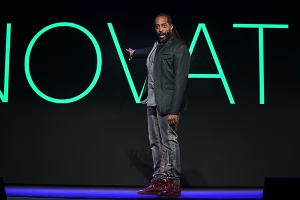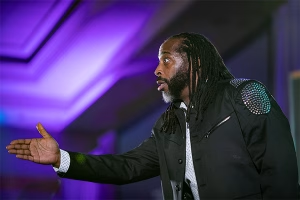Leadership communication is evolving, and storytelling has become its cornerstone. But not just any storytelling—poetic storytelling is redefining how leaders inspire, connect, and influence. By blending narrative with the artistry of spoken word, leaders like Sekou Andrews are showing why poetic storytelling is the future of leadership communication.
First, poetic storytelling captures attention in ways traditional communication cannot. The rhythmic delivery of spoken word grabs listeners immediately, creating an engaging experience that holds their focus. In a time when distractions are constant, this kind of storytelling ensures that key messages don’t get lost.
Second, poetic storytelling humanizes leadership. Leaders often struggle to connect with their teams on a personal level, but poetry bridges that gap by weaving emotion and authenticity into communication. By sharing stories that resonate universally, leaders can foster trust and strengthen relationships.
Poetic storytelling also inspires action. Through vivid imagery and emotional arcs, it motivates audiences to think differently, collaborate effectively, and embrace change. Sekou Andrews demonstrates how framing business challenges as poetic narratives turns abstract goals into tangible, actionable visions.
Additionally, this approach aligns communication with purpose. By embedding organizational values into poetic narratives, leaders can rally teams around a shared mission. Poetic storytelling doesn’t just convey information—it inspires belief.
Finally, poetic storytelling leaves a legacy. Its artistry ensures that key ideas are not only understood but remembered. In the future of leadership, those who master poetic storytelling will stand out as authentic, inspiring, and impactful communicators.


